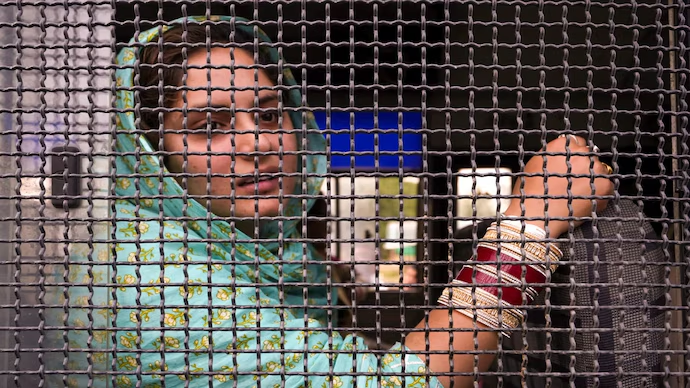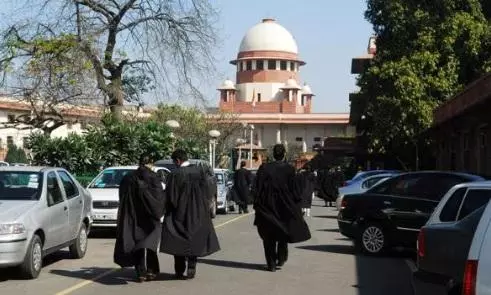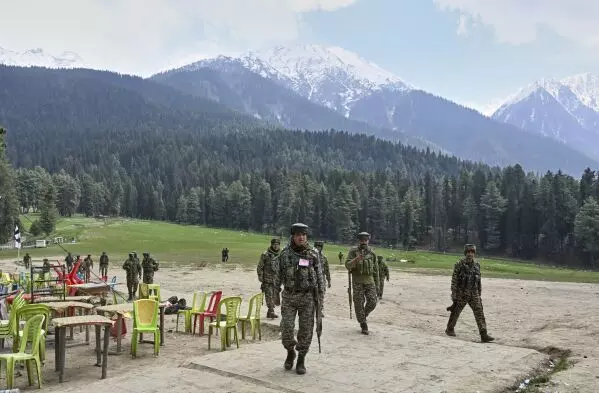
CRPF jawan's Pakistani wife gets last-minute relief from deportation
text_fieldsNew Delhi: India’s recent decision to revoke visas of Pakistani nationals has led to several noteworthy cases, including that of a Pakistani woman married to a Central Reserve Police Force (CRPF) jawan, who narrowly avoided deportation following a last-minute court stay.
Minal Khan, a resident of Pakistan’s Punjab province, met Munir Khan, a CRPF jawan posted in Jammu and Kashmir, through an online platform. Their relationship led to an online nikah in May 2024. After waiting nearly nine years for a visa, Minal finally arrived in India in March 2025. She was granted a short-term visa, which expired on March 22.
Following the April 22 Pahalgam terror attack that claimed 26 lives, including those of tourists, Minal received a deportation notice, like many other Pakistani nationals whose visas were revoked. The Indian government had set April 29 as the deadline for their departure.
On the day she boarded a deportation bus to the Attari-Wagah border, her lawyer, Ankur Sharma, who also serves as a BJP spokesperson, secured a court order staying her deportation. Minal was informed of the development en route to the border, leading to her disembarkation and return.
According to Greater Kashmir, Minal had applied for a Long-Term Visa before the Pahalgam attack, and her application remained under review by the Ministry of Home Affairs. In a public statement, she appealed to the Indian government to consider humanitarian grounds, urging that families should not be separated.
“We should be allowed to stay with the family,” she told PTI, condemning the Pahalgam attack and demanding strict punishment for the perpetrators. “We followed all the rules. I applied for a Long-Term Visa after my short-term visa expired. We were told it would be cleared. But after the attack, I’m being separated from my husband. Several children are being separated from a parent. This is inhuman. We pray to Prime Minister Narendra Modi for justice,” Greater Kashmir quoted her as saying.
Meanwhile, questions have emerged over how a CRPF jawan was permitted to marry a Pakistani national, particularly amid heightened security concerns. Critics on social media labelled it a potential “marriage trap,” and some even called for an investigation by the National Investigation Agency (NIA). “Isn’t it scary?” wrote one user on X, while another asked if there were more instances of Indian security personnel marrying individuals from Pakistan.
The Ministry of Home Affairs recently revised its earlier directive, allowing Pakistani nationals to return home via the Attari-Wagah border until further notice, even though the original plan had called for closing the route by April 30.
“All Pakistani nationals may be allowed to exit India to go into Pakistan from the Integrated Check Post at Attari till further orders, with due clearance,” the latest directive stated.
In the six days following the government’s order to revoke visas, 786 Pakistani nationals, including 55 diplomats and their staff, have left India through the Attari-Wagah border. In the same period, 1,465 Indian nationals returned from Pakistan.
While cross-border romances have often been romanticised in popular culture, including films like 'Henna' (1991) and 'Veer-Zaara' (2004), Minal Khan’s case has reignited debate over national security, immigration procedures, and the complexities of international marriages involving Indian security personnel.




















